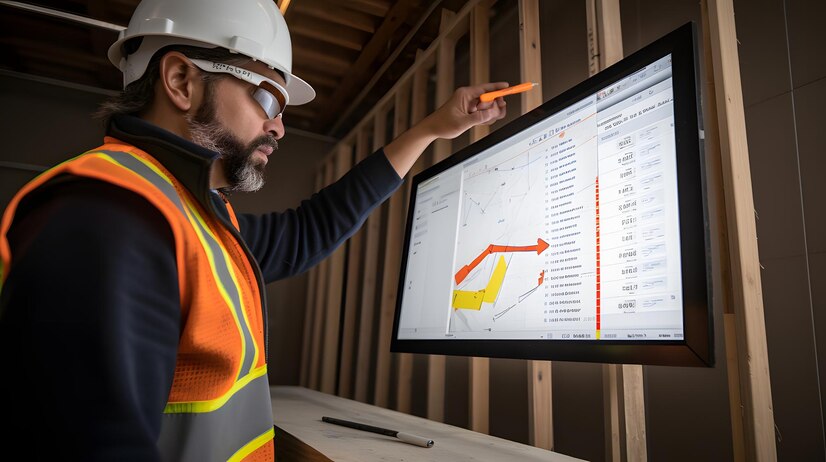Introduction to Site Survey
In the realm of network infrastructure and wireless connectivity, ensuring optimal performance and reliability is paramount. One crucial aspect of achieving this is conducting thorough site surveys. A site survey involves the comprehensive assessment of a physical location to determine the most effective placement of network equipment, analyze wireless signal propagation, and identify potential sources of interference. Let’s delve deeper into the world of site surveys and understand why they are indispensable in modern networking projects.
Preparation for Site Survey
Before embarking on a site survey, adequate preparation is essential. This includes gathering the necessary equipment such as wireless spectrum analyzers, access points, and measuring tools. Additionally, it’s crucial to review project requirements and goals to tailor the survey accordingly. Whether it’s optimizing Wi-Fi coverage in a large office building or ensuring seamless connectivity in a crowded public space, understanding the project’s objectives is key to a successful survey.
Understanding Site Survey Parameters
A comprehensive site survey involves assessing various parameters, including the physical environment, wireless connectivity, and security considerations. The physical environment assessment entails evaluating factors such as building layout, construction materials, and potential sources of interference. Wireless connectivity analysis involves measuring signal strength, throughput, and coverage areas to ensure optimal performance. Security considerations encompass identifying potential vulnerabilities and ensuring compliance with security protocols.
Conducting the Site Survey
The actual process of conducting a site survey follows a systematic approach. It begins with mapping out the survey area and identifying key locations for equipment placement. Then, measurements are taken to assess signal strength and coverage throughout the space. This may involve walking the premises with specialized equipment to collect data points. Throughout the survey, it’s essential to document findings and observations for later analysis.
Analyzing Site Survey Data
Once the survey data is collected, it’s time to analyze and interpret the results. This involves scrutinizing metrics such as signal-to-noise ratio, channel utilization, and interference levels. By dissecting the data, surveyors can identify potential issues such as dead zones, channel overlap, or signal degradation. This analysis lays the groundwork for implementing solutions to optimize network performance.
Optimizing Site Survey Results
Armed with insights from the survey data analysis, the next step is to optimize the network configuration accordingly. This may involve adjusting access point placement, fine-tuning antenna settings, or reconfiguring channel assignments. By addressing identified issues and fine-tuning network parameters, the goal is to maximize efficiency and coverage while minimizing interference.
Importance of Site Survey Reports
Effective communication of survey findings is essential for stakeholders to make informed decisions. Site survey reports provide a detailed overview of the survey methodology, findings, and recommendations. These reports serve as valuable documentation for project managers, network engineers, and other stakeholders involved in the deployment and maintenance of the network infrastructure.
Case Studies and Examples
Real-world examples of successful site surveys highlight the importance of thorough planning and execution. Whether it’s a large-scale deployment in a corporate campus or a challenging outdoor environment, case studies provide valuable insights into best practices and lessons learned. By examining past projects, surveyors can glean valuable knowledge to apply to future endeavors.
Future Trends in Site Survey Technology
As technology continues to evolve, so too does the field of site surveying. Emerging technologies such as machine learning, artificial intelligence, and advanced modeling tools are revolutionizing the way surveys are conducted. Predictive modeling, predictive analytics, and augmented reality are just a few examples of innovative approaches shaping the future of site survey methodologies.
Common Mistakes to Avoid
Despite the importance of site surveys, there are common pitfalls that surveyors should be wary of. These include overlooking environmental factors, relying on outdated equipment, or failing to adequately plan and prepare for the survey. By being aware of these pitfalls and taking proactive measures to mitigate them, surveyors can ensure the accuracy and reliability of their survey results.
Benefits of Professional Site Survey Services
While some organizations may attempt to conduct site surveys in-house, there are distinct advantages to enlisting the services of professional surveyors. Experienced surveyors bring specialized expertise, industry knowledge, and state-of-the-art equipment to the table. Their thorough approach and attention to detail can make a significant difference in the accuracy and effectiveness of the survey results.
Cost Considerations
When considering the cost of site survey services, it’s essential to weigh the potential benefits against the investment required. While professional surveying services may entail upfront costs, the long-term benefits in terms of improved network performance and reduced downtime can far outweigh the initial expense. Additionally, budgeting for site survey expenses as part of the project planning process ensures that adequate resources are allocated for this critical phase.
Regulatory Compliance
In addition to technical considerations, site surveys must also adhere to regulatory requirements and industry standards. This includes compliance with building codes, environmental regulations, and wireless spectrum regulations. Failure to comply with these regulations can result in costly fines, legal liabilities, and project delays. Therefore, it’s imperative for surveyors to stay abreast of relevant regulations and ensure compliance throughout the survey process.
Educational Resources and Training
For aspiring site surveyors looking to hone their skills or seasoned professionals seeking to stay current with industry trends, there are numerous educational resources and training opportunities available. Online courses, workshops, and certification programs offer valuable insights into site survey methodologies, tools, and best practices. By investing in continuous education and professional development, surveyors can enhance their expertise and deliver superior results.
Conclusion
In conclusion, site surveys play a crucial role in ensuring the efficiency, reliability, and security of network infrastructure. By conducting thorough assessments of physical environments, analyzing wireless connectivity, and identifying potential challenges, surveyors can optimize network performance and minimize risks. Through effective communication of survey findings and proactive measures to address issues, stakeholders can make informed decisions and achieve their project goals. As technology continues to evolve, staying abreast of emerging trends and best practices is essential for surveyors to deliver value-added solutions in an ever-changing landscape.
FAQs (Frequently Asked Questions)
Why is a site survey necessary for network deployment? A site survey helps identify potential challenges and optimize network performance by assessing factors such as signal strength, coverage, and interference.
How often should site surveys be conducted? Site surveys should be conducted whenever there are significant changes to the physical environment or network infrastructure to ensure continued performance and reliability.
What equipment is needed for a site survey? Equipment for a site survey may include wireless spectrum analyzers, access points, measuring tools, and documentation materials.
How long does a typical site survey take to complete? The duration of a site survey depends on various factors such as the size of the area, complexity of the environment, and scope of the project, but it typically ranges from a few hours to several days.
Can I conduct a site survey on my own, or do I need to hire a professional? While it’s possible to conduct a site survey independently, hiring a professional surveyor with specialized expertise and equipment can ensure more accurate and reliable results.







